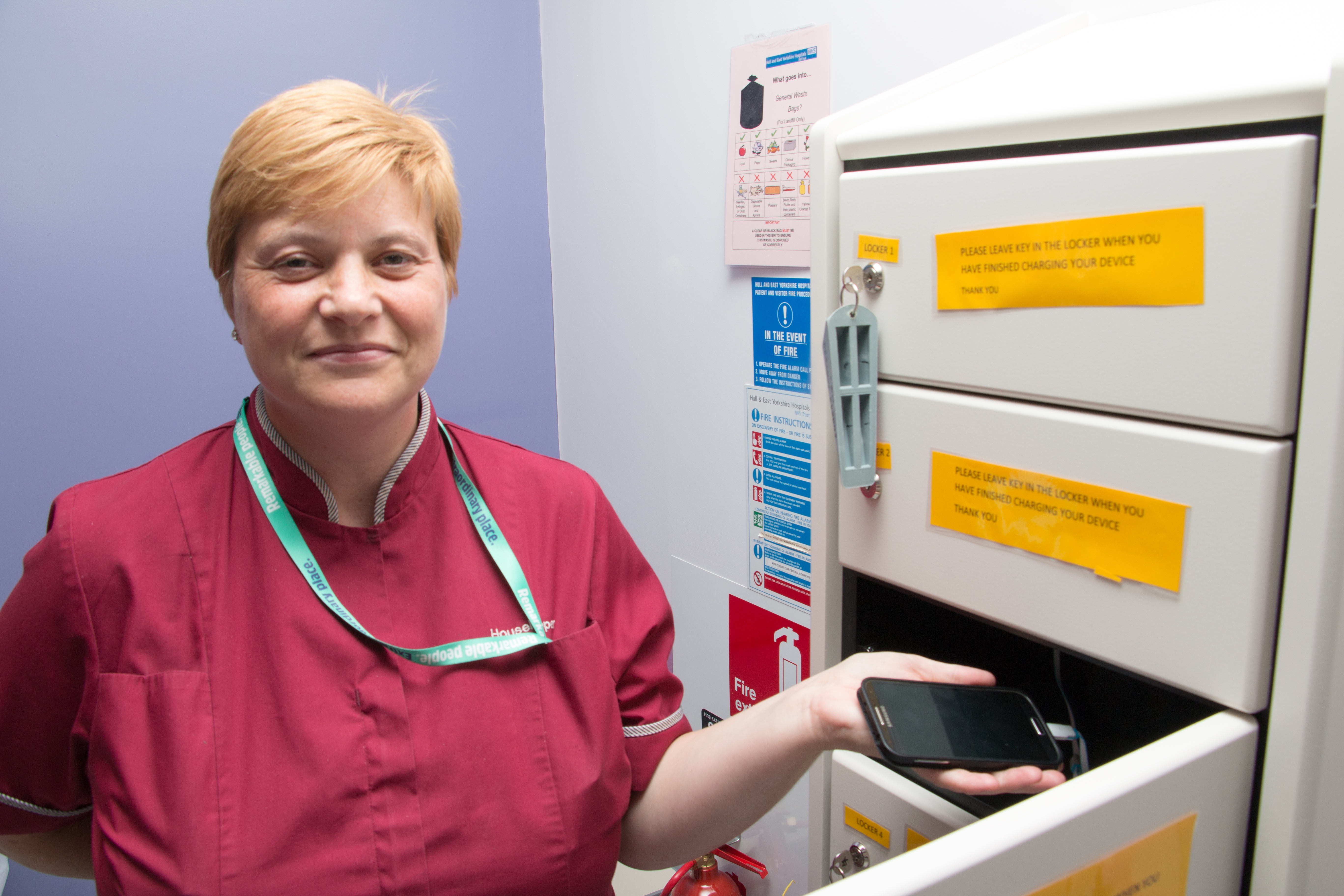A pilot project is underway at Hull Women and Children’s Hospital to help keep patients in touch with
their loved ones.
Emma Johnson, Ward Housekeeper on Maple Ward, had her bags packed and was set to embark on a trip
of a lifetime to Florida when she came across an innovative device that allowed people to charge their
mobile phones.
It was then, in Hilton’s Gatwick Airport Hotel, that Emma had a ‘lightbulb moment’, figuring this same
device could help new mums and mums‐to‐be, keep in touch with their loved ones whilst spending time
in hospital.
With the help of Hull University Teaching Hospitals NHS Trust’s Pioneer Team Academy; a scheme which
supports staff in developing and improving services; Emma was able to submit her project for
consideration by members of the executive team, and they immediately fell in love with it.
Now, the first phone charging device has been installed on Maple Ward, enabling women spending time
on the ward to charge their mobile phones quickly, safely, and securely.
Emma said “I was all set to go on holiday when I came across this phone charging device. I thought it was
such a great idea and one that we could potentially use within the Trust. Women who are expecting
babies are often rushed into hospital and are not always prepared for an overnight stay, but this is such a
special time in a family’s life, I just knew I had to find a way of implementing it.
“When I first looked at the costings, they were really expensive, but then I decided to submit an
application to the Pioneer Team Academy where I received help to find a local company who could create
a bespoke device for us.”
The device itself resembles a locker, allowing patients to charge their phones inside it within 15 to 20
minutes, and each station is secured with a key. The devices are perfect for those who don’t have a
charger with them, but even for those who do, it negates the need to go through health and safety
requirements to have their own charger PAT tested. Rapid charging in this way will enable more people
to keep in touch with family and friends using their own phones, which will, in turn, free up the ward
phones for other people, including staff.
Emma continues:
“Everyone has welcomed the initiative, from patients to colleagues and visitors alike. It’s great to see the
project come to fruition and I am just so proud knowing that this will improve the overall experience of
women and families in our care.”
Over the coming months, the project will be evaluated and, if deemed viable, such charging stations
could be rolled out further across the Trust in the near future.

